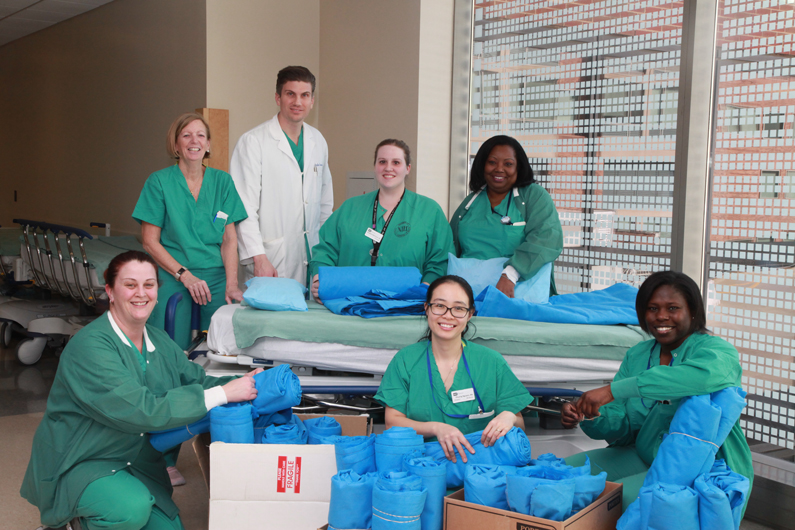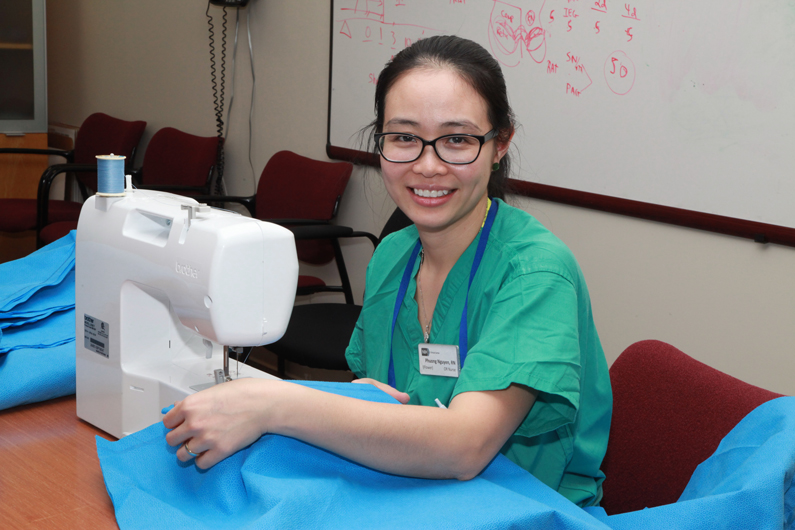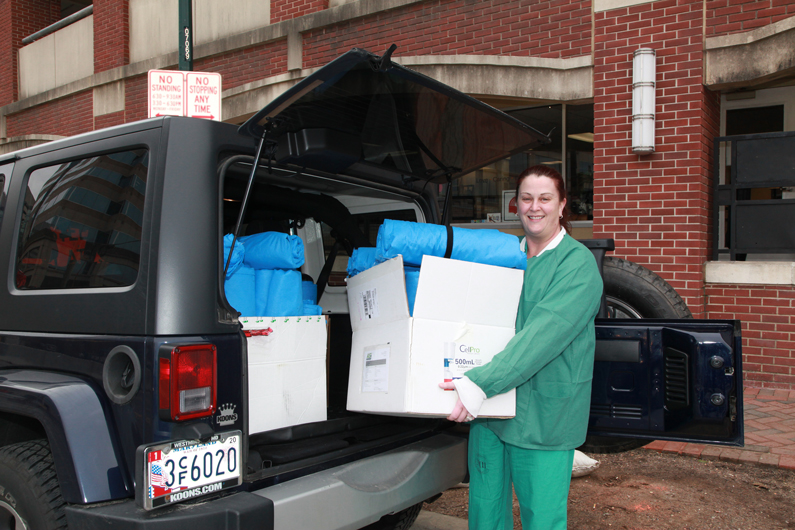


With a needle, thread and desire to give back, members of the NIH Clinical Center operating room have repurposed surgical cloth into blankets for those experiencing homelessness in Montgomery County.
Seven surgical technologists and nurses donate their personal time to sew a special double ply, water resistant cloth that wraps sterilized surgical instruments prior to any operation. The cloth, which is never inside the operating room during a procedure, cannot be recycled. It's been estimated that the blue sterile wraps account for roughly 19 percent of an operating rooms waste.
"We wanted to reduce the operating rooms' footprint while finding a meaningful way to support our community and give to those in need. The blue wraps are water resistant, durable and warm," said Carrie Wellen, the surgical technologist who began the sewing initiative.
On Feb. 27, Wellen delivered the first batch of 30 blankets to Bethesda Cares, a non-profit outreach organization for the homeless. Bethesda Cares works closely with people experiencing long-term homelessness, helping them find paths to homes.
There are nearly 850 homeless individuals in the Montgomery County area, according to a 2018 survey by the Metropolitan Washington Council of Governments. Many will not go to shelters even when the temperatures drop to below freezing. The blankets provide a comforting, warm solution for the homeless.
"The blankets are a wonderful item for our street outreach staff to distribute during the extremely cold period," said John Mendez, Bethesda Cares executive director. "We're truly grateful for the support of the NIH Clinical Center throughout the challenging winter period."
Using their suture skills, the volunteers can typically produce one blanket an hour. Dr. Jonathan Hernandez, surgical oncologist with the National Cancer Institute, donated a sewing machine for volunteers to use before or after work. To become a sewing volunteer, email carrie.minard@gmail.com.

